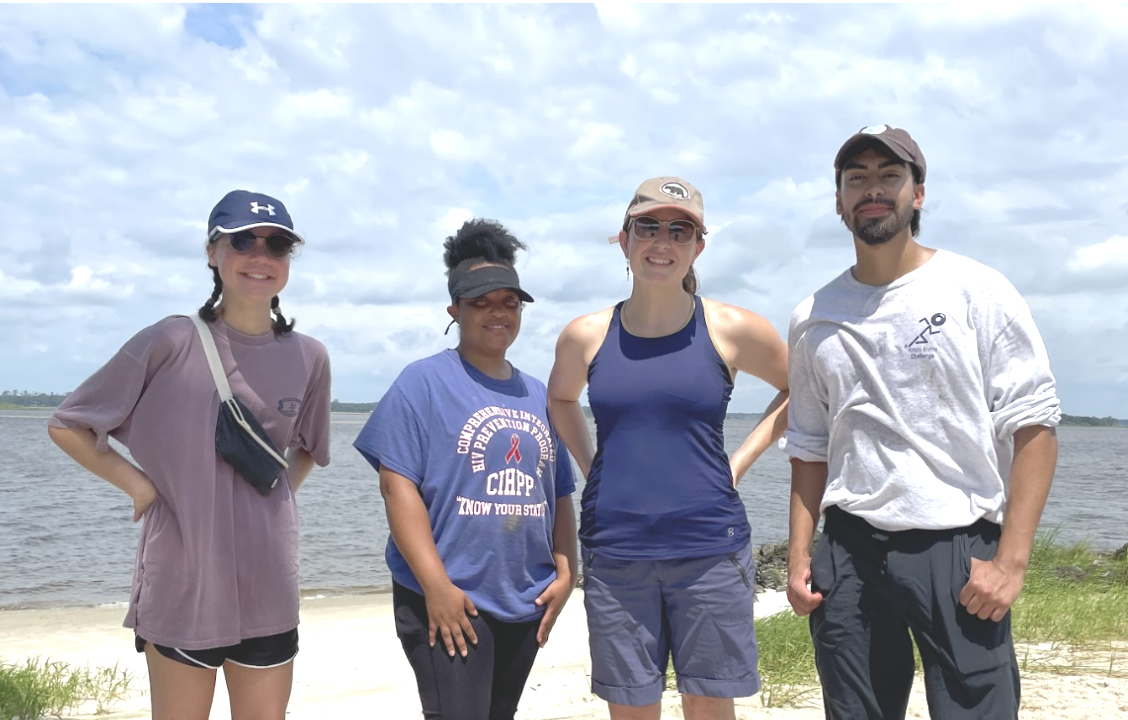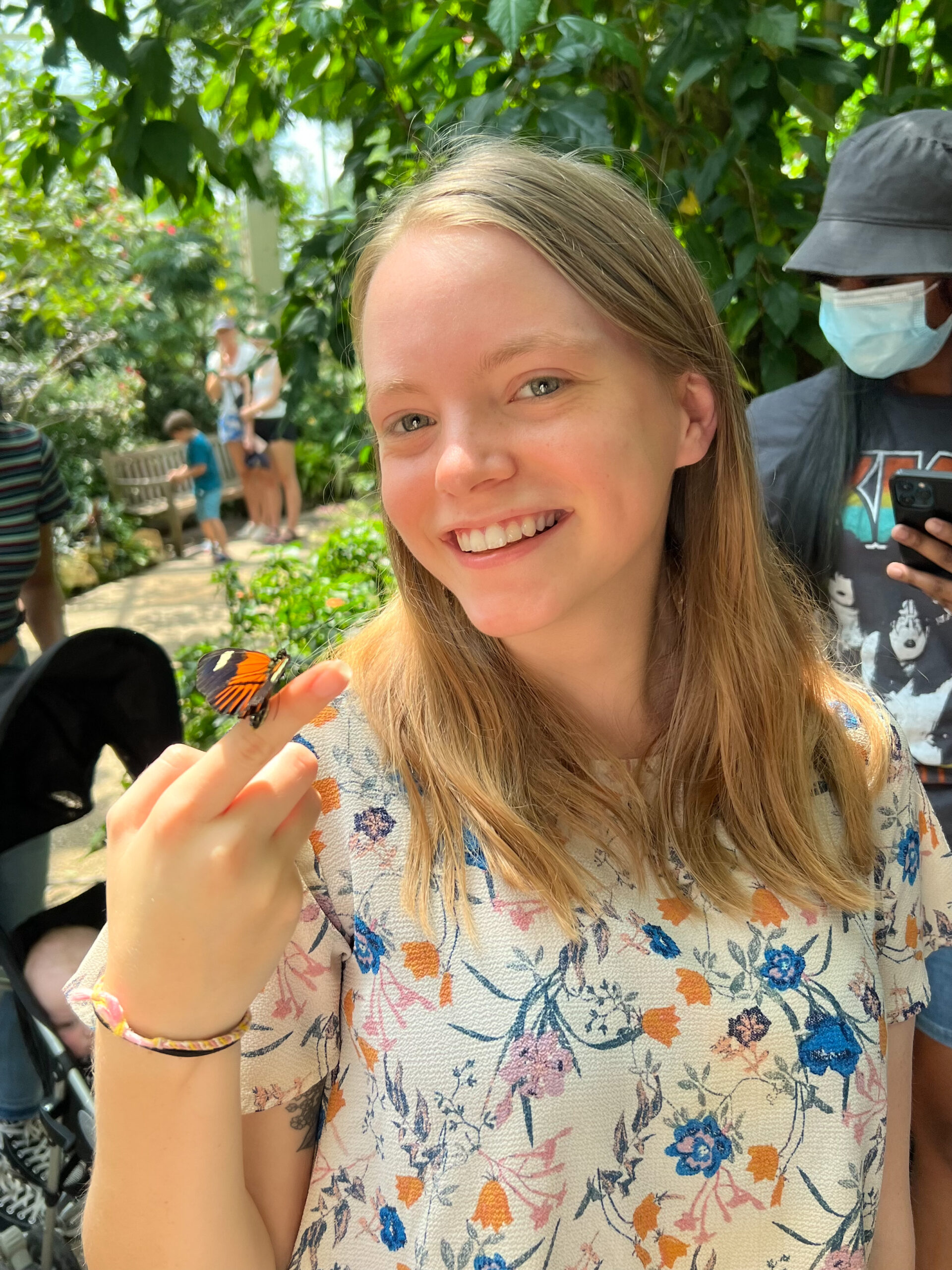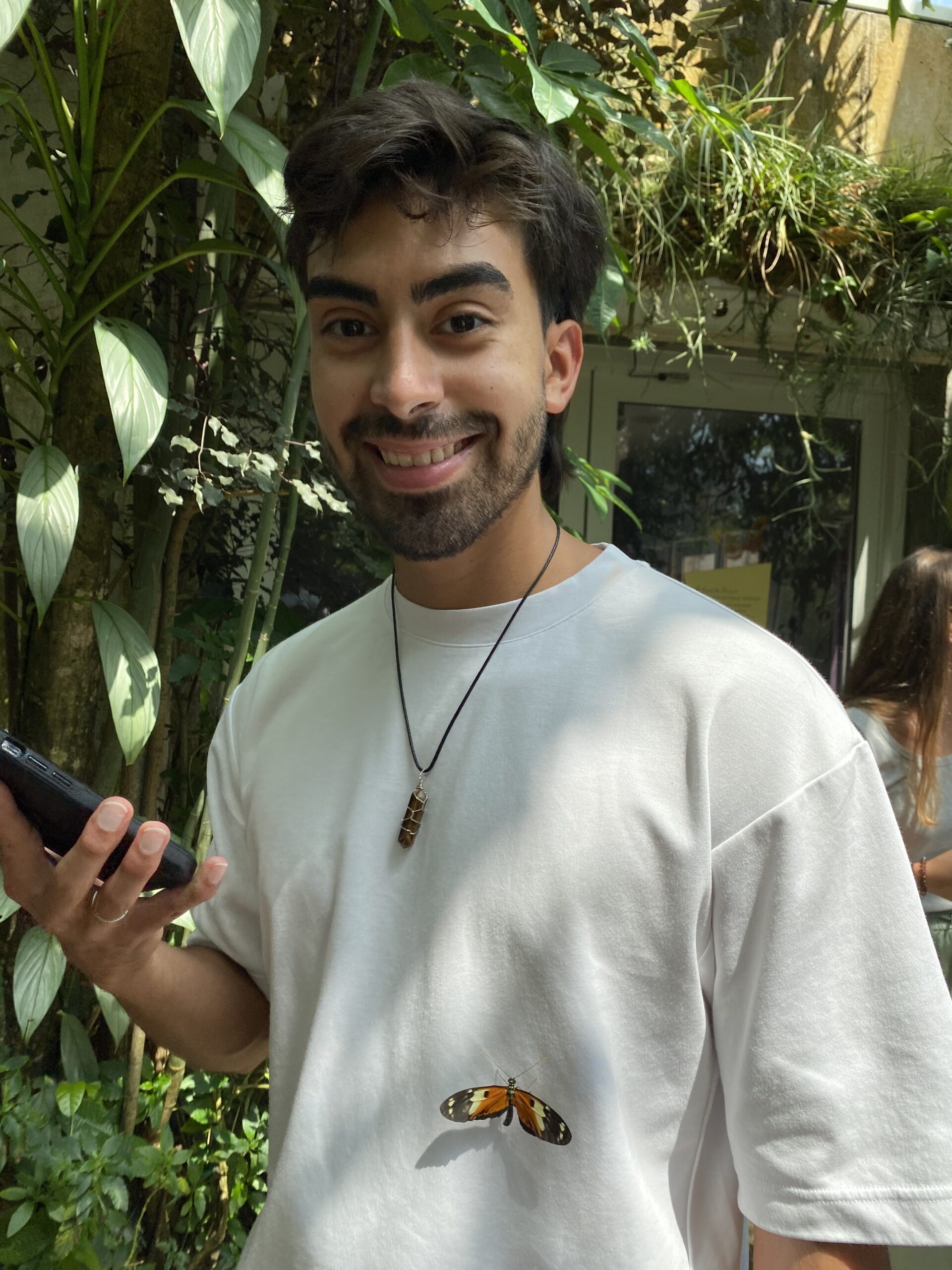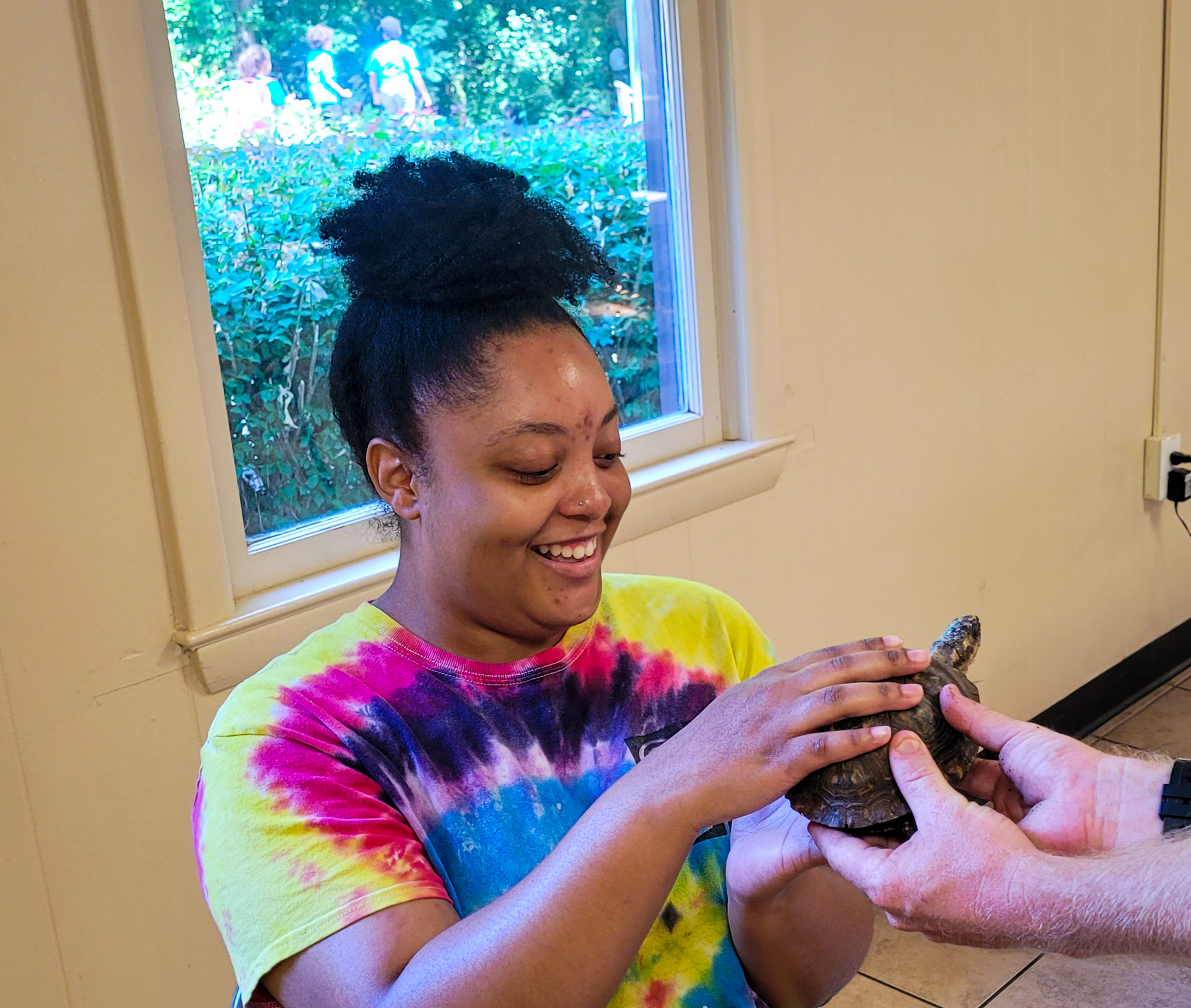
From left to right: Michaela Abraham, Nykira Gibson, Jane Harrison, and Manny Valbuena
Each summer, North Carolina Sea Grant offers undergraduate students opportunities to join experts across the state to explore issues affecting local communities.
“As part of National Sea Grant’s Community-Engaged Internship program, they gain hands-on experience with coastal, marine, or Great Lakes issues of environmental, economic, and or social importance,” explains Jane Harrison, NC Sea Grant’s coastal economics specialist.
Harrison not only is a mentor for the NC interns but also she was among the founders of the national program to give early career experience for students in underserved communities.
Check back at ncseagrant.org for announcements about 2023 applications for NC interns. In the meantime, learn more about NC Sea Grant projects and meet the interns from 2022 below.
On the North Carolina Oyster Trail
Michaela Abraham served as the mariculture tourism intern under the direction of Jane Harrison, NC Sea Grant’s coastal economics specialist, where she focused on communications and outreach for the NC Oyster Trail.

Michaela Abraham
Abraham created social media posts for the NC Oyster Trail’s Facebook and Instagram pages to highlight a mix of businesses and restaurants along the Trail. They also produced educational content focused on increasing consumer knowledge of oysters, with topics like how to safely purchase them from seafood markets and when is best to eat wild vs. farmed oysters.
In this capacity, Abraham has been able to “take more scientific information and scale it down” for a broader audience. One example is the cover story in the Autumn 2022 Coastwatch magazine: “What’s So Special About North Carolina’s Osyters? Savoring the NC Oyster Trail.”
Abraham is a sophomore at NC State studying fisheries, wildlife, and conservation biology with a minor in marine science. They continued working with NC Sea Grant into the fall, focusing on social media and helping publicize NC Oyster Week in October.
Environmental Justice in Raleigh
Corie Griebel and Manny Valbuena served as NC Sea Grant’s inaugural climate justice interns. Like Abraham, Griebel and Valbuena also worked with Harrison as well as Cayla Cothron, climate resilience extension associate at NC Sea Grant.
Harrison designed this internship as a way to interact with organizations and agencies in the environmental justice space.
A case study on city planning processes, the internship allowed Griebel and Valbuena to determine what topics each would focus their work on — to decide on their topics, Griebel and Valbuena spent their first month researching environmental justice issues in Raleigh and across the country.

Corie Griebel
Griebel focused on the intersection of parks and open space with environmental justice while Valbuena opted to look at urban revitalization and renewal. Both took a particular interest in how the City of Raleigh uses equity frameworks: Griebel in its park and open space system, and Valbuena to address historically disinvested areas of the city as well as the problem of gentrification.
This translated to the hands-on portion of the internship, including attending meetings led by Raleigh’s City Council, Parks, Recreation and Cultural Resources Department, and Human Relations Commission, among others. Griebel and Valbuena also had the opportunity to interact with and interview salient community members.
Finally, they assessed if and to what extent Raleigh is addressing ongoing strengths, challenges, opportunities — known as SWOT analyses. They also looked at barriers to achieving environmental justice in parks and open spaces as well as urban revitalization and renewal efforts. They presented their findings to the NC Sea Grant team at the end of the summer.

Manny Valbuena
For Valbuena, the most surprising part of this internship was learning about the city’s decision-making process firsthand at these meetings.
This internship experience gave Griebel a greater appreciation for local politics: “Spending time in those spaces, I learned so much about the processes of local government that I didn’t know before.”
Griebel is a senior in environmental science with a minor in sociology at NC State, a choice she said allows her to “work with people and be in the environment.” She also works at the Walnut Creek Wetland Park.
Valbuena is a junior at NC State studying environmental engineering. For him, this internship linked his STEM background with a passion for social justice: “[You] can’t have environmental justice without having social justice first,” he notes.
Science Education in Cumberland and Robeson County Communities
Nykira Gibson served as this summer’s Lumber River watershed science education intern, a joint internship between NC Sea Grant and NC Space Grant. Gibson spent the summer working with Erika Young, NC Sea Grant’s coastal and marine education specialist, as well as Jobi Cook, NC Space Grant’s associate director.
One of Gibson’s initial projects involved teaching freshwater ecology to attendees of Clark Park Nature Center’s summer camps. The Fayetteville center provides environmental education activities led by park rangers, including canoeing, short hikes, observing animal scat and footprints, and orienteering.
In addition to her work with Clark Park, Gibson partnered with other programs to bring environmental education and engagement opportunities to youth throughout eastern North Carolina.
This included working with the Unite camp and the NASA Precollege Summer Institute, both at Fayetteville State University (FSU). With the NASA Precollege Summer Institute, Gibson worked with geographer Trung Tran of FSU, to foster interest in geospatial STEM degree programs and careers for high school students.

Nykira Gibson
Additionally, Gibson worked with UNC Pembroke’s Project 3C, an opportunity for Native American high school students in Hoke, Cumberland, Scotland, and Robeson counties to partake in STEM-focused programming as well as professional development opportunities. There, she helped high school students collect macroinvertebrates from the Lumber River; they were then taken to UNC Pembroke for identification, where the students could engage in general microscopy techniques to classify the organisms and discuss the health of the river based on the samples collected.
A first generation college student and native of Robeson County, Gibson is a senior at FSU, studying biology with a concentration in biotechnology and molecular biology. This internship gave her the opportunity to engage in field and lab work, conducting this research on the river in the county she was born and lives in.
##